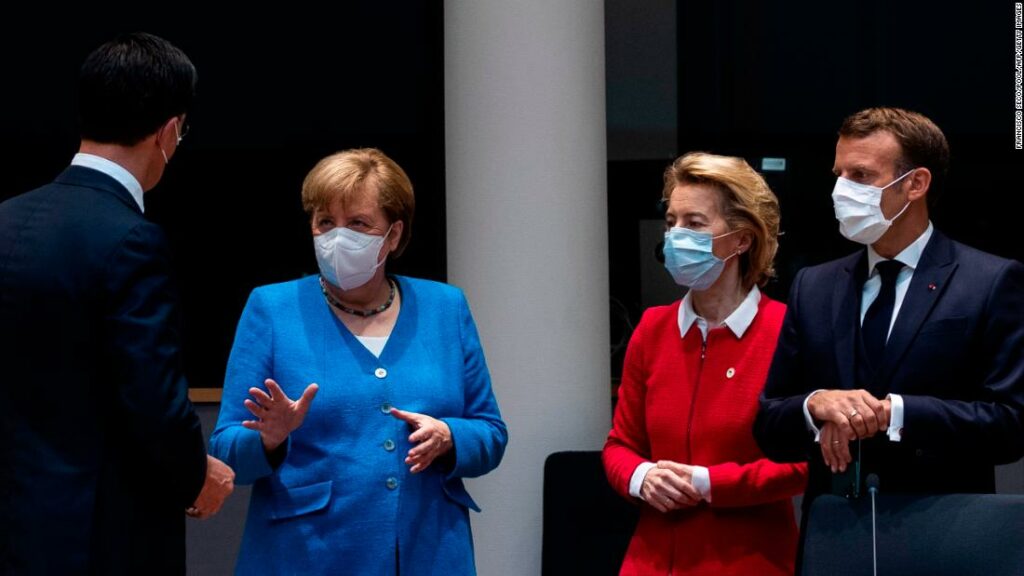Analysis: Europe’s disunity and lack of trust imperils the continent’s future

Petty spats between the leaders of the EU’s political institutions have led to critics saying that those at the top of the Brussels food chain are prioritizing their own careers and personal power over the lives of European citizens. As the Covid-19 pandemic approaches something resembling its end, and geopolitical challenges — such as the fallout from the crisis in Afghanistan — take hold, this open disunity presents the bloc with a series of fundamental problems to which there are no obvious solutions. First things first: The Union itself is not facing extinction. The EU has remarkable staying power and the self-interest of its member states means there is no real chance of it falling apart any time soon. What is in question, however, is the Union’s long-term purpose and legitimacy. Last week, EU Commission President Ursula von der Leyen wrote to the president of the EU Parliament, David Sassoli, declining to act on a resolution that had been passed by a huge majority in the EU’s legislative and only publicly elected body. The Parliament believes that two member states, Hungary and Poland, have violated the EU’s rule of law and as such should have central funding halted. The offenses on which this is based range from violating the independence of the judiciary to discriminating against LGBT communities — both assaults on fundamental cornerstones of EU membership. In 2016, the EU gave Turkey — a regional partner — cash to host Syrian refugees. Turkey was subsequently able to weaponize those refugees when it became politically convenient to do so. Why? Because member states were reluctant to welcome large numbers of migrants into their countries and in some instances took extreme measures to keep them out.That migrant crisis played a large part in driving Euroskeptic, populist sentiment across the continent, as well as the victory of the pro-Brexit campaign in the UK in 2016.Obviously, none of this was good for the EU, and it’s far from implausible that the current short-sightedness on Afghanistan could see this repeated. This might seem a dramatic overreaction to a row between the European Parliament and Commission over whether to act on a resolution. But, as Freund points out, the rule of law debate really does get to the fundamentals of how the EU will face the challenges hurtling towards every corner of the planet: as a united group with a common purpose or a collection of more isolationist nation states. “The way the row over Hungary and Poland has played is putting the whole EU into question. If member states don’t follow the treaties, if the Commission and Council don’t punish rule breakers, then what is left of the EU,” he asks. These are questions that the bloc’s leadership will need to answer in the coming year, as Europe pieces itself back together after the pandemic, elections in its two biggest countries — France and Germany — and attempts to navigate the geopolitical minefield that the past 18 months has left the world in. If the EU is serious about its ambitions to be a major power on the world stage and — in light of what’s happened in the past fortnight — step in where America might have previously, it needs all members on the same page and playing by the same rules.The reality of this latest dilemma, however, is that keeping all 27 member states happy at the same time is a near-impossible balancing act. The longer these divisions exist, the wider the gaps in trust between stakeholders become. And at some point, that distance might become too large for anyone to bridge.




